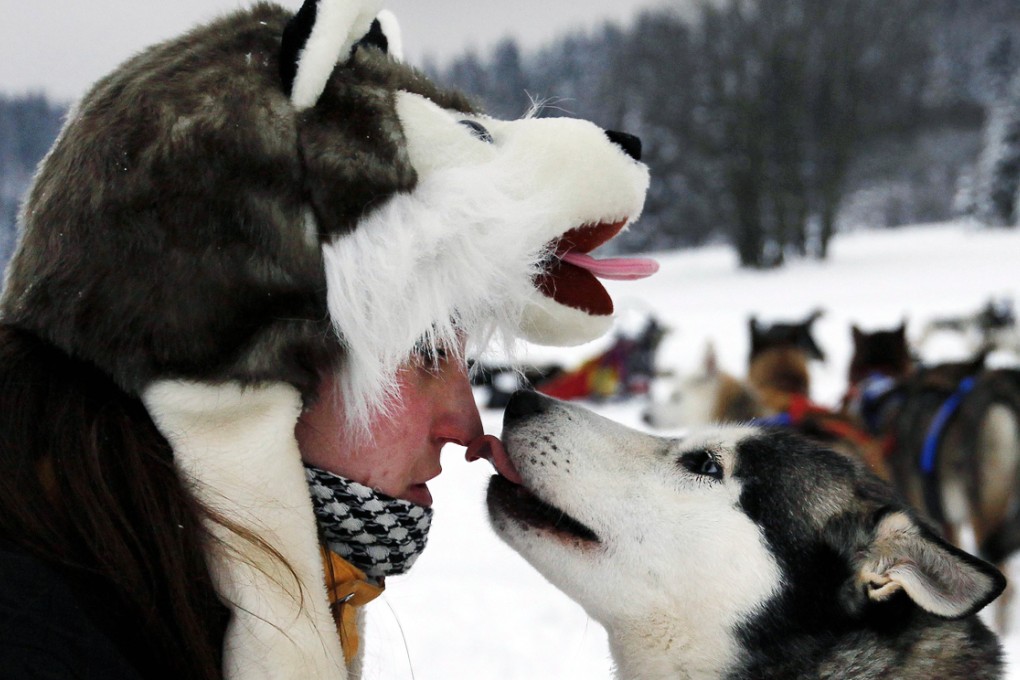US$8,000 dog stolen and sold to a restaurant for meat
Distraught owner launches legal action against restaurant and complains police did not search for missing guard dog owing to legal restrictions

Police failed to search for a stolen Alaskan Malamute dog which was later sold and cooked by a restaurant, the businessman who owned the expensive breed has said.
The man named Yang, who runs a tyre shop in Tonghua, Jilin, bought the dog named Ruizhi – “wisdom” – for US$8,000 from the US and trained it to guard his business, Xinwenhuabao reported on Wednesday.
Yang’s family said the dog was clever and could even recognise a 20 yuan note.
But Ruizhi went missing on November 6 and Yang obtained surveillance footage from neighbours showing a man and woman stealing it.
Yang said local police refused to search for the dog because there are no dog protection laws. He posted photos of the dog and the suspects on the Wechat social network and promised to reward any information which would help him find Ruizhi.
The next day he tracked down the alleged dog thief with the help of a friend on Wechat. The thief admitted he sold the dog for 700 yuan (HK$884) to a dog dealer. Yang then tracked down the dealer who said he sold the dog for 950 yuan to a restaurant.